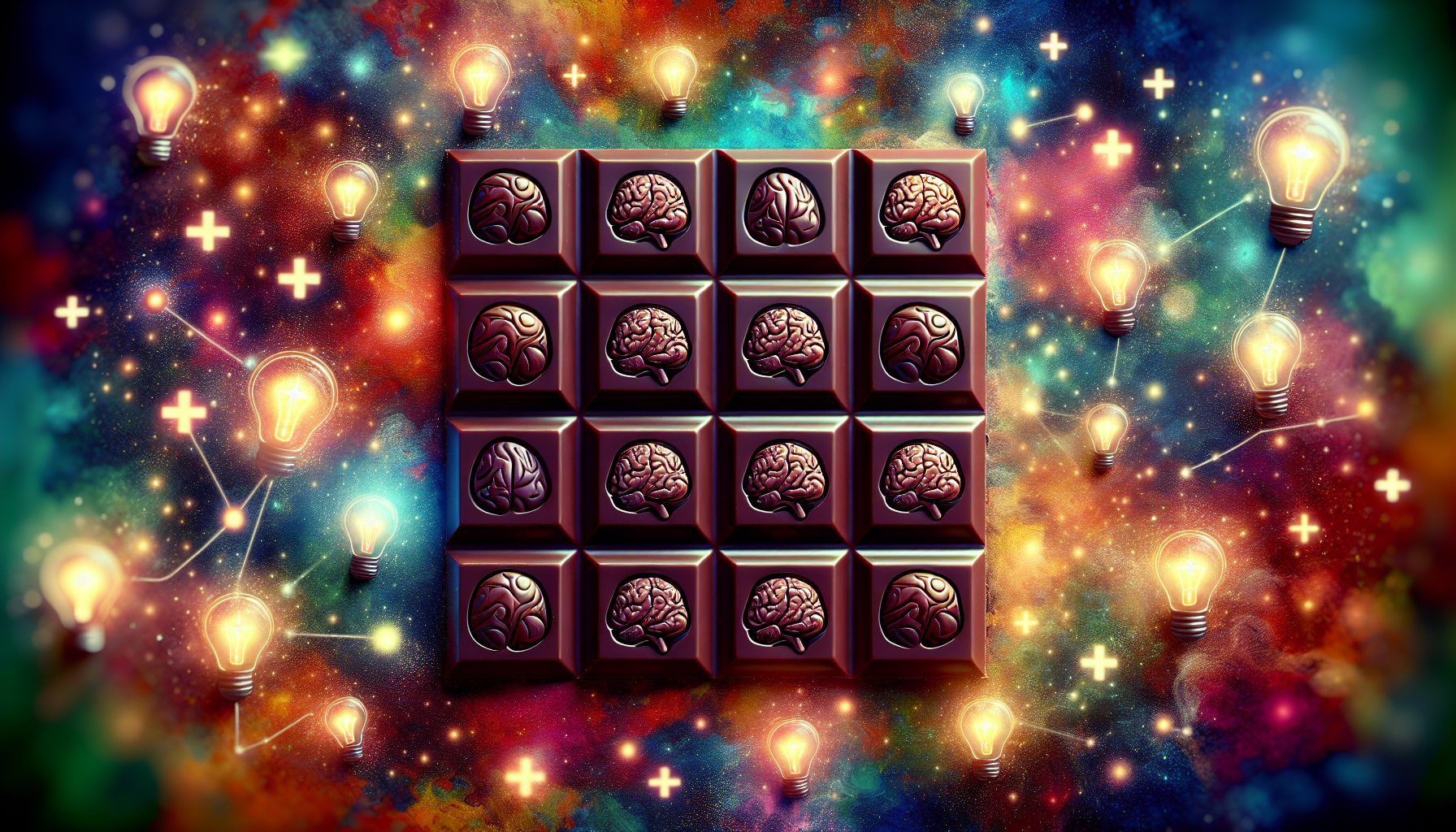In recent years, dark chocolate has gained popularity not only as a decadent treat but also as a superfood with various health benefits. Among its most fascinating effects is its impact on brain function. This article delves into how dark chocolate influences cognitive performance, mood, and overall brain health.
Nutritional Profile of Dark Chocolate
Dark chocolate is rich in several key components that contribute to its health benefits. It contains flavonoids, particularly epicatechin and catechin, which are known for their antioxidant properties. These compounds help neutralize harmful free radicals and reduce oxidative stress, which is a contributor to cognitive decline. Furthermore, dark chocolate is a good source of minerals such as iron, magnesium, and zinc, which are crucial for maintaining brain health.
Cognitive Enhancement Through Flavonoids
The flavonoids in dark chocolate have been linked to improved cognitive functions. They stimulate blood flow to the brain, which can enhance problem-solving skills, memory, and attention span. Consuming dark chocolate in moderation may, therefore, assist in sustaining mental acuity, especially in older adults. To explore this topic further, readers may find the article on Optimizing Brain Function with Essential Fatty Acids to be an enriching resource.
Mood Elevation and Stress Reduction
Dark chocolate is also known for its mood-boosting effects. It stimulates the production of endorphins, the body’s natural "feel-good" chemicals. Additionally, it contains serotonin, a neurotransmitter that acts as an anti-depressant. These aspects of dark chocolate can be especially beneficial for emotional regulation, a topic thoroughly examined in The Impact of Mindfulness on Emotional Regulation and Brain Health.
Impact on Neuroplasticity
Neuroplasticity, the brain’s ability to adapt and reorganize itself, is vital for learning and memory. The flavonoids in dark chocolate may promote neuroplasticity, thus supporting cognitive functions. For those interested in the broader context of neuroplasticity, the piece on Brain Plasticity and Its Relation to Mental Health offers additional insights.
Dark Chocolate and Brain Health
The brain health benefits of dark chocolate are closely aligned with its ability to manage inflammation and oxidative stress—two factors that can negatively affect cognitive health. As such, dark chocolate can be considered part of a brain-healthy diet, contributing to the reduction of neurodegenerative risks. For a comprehensive understanding, consider exploring the subject of Brain Health, which offers a broader perspective on maintaining cognitive function.
External Resources for Further Reading
To support the points made in this article, here are some niche and specific resources:
- A study published in the Journal of Alzheimer’s Disease provides evidence on how flavonol-rich cocoa may benefit cognition in older adults.
- Research found in Frontiers in Nutrition explores the neuroprotective effects of cocoa flavonoids on cognitive performance.
- An article from Psychopharmacology discusses the acute effects of flavanol-rich dark chocolate on cerebral blood flow in healthy adults.
- Insights into the relationship between dark chocolate and mood can be found in a study from the Journal of Psychopharmacology, which examines the psychoactive properties of chocolate.
- For a detailed analysis of the impact of dietary flavonoids on neurovascular coupling and cognition, the American Journal of Clinical Nutrition offers a comprehensive review.
Recommended Consumption and Considerations
While dark chocolate can be advantageous for brain function, it’s important to consume it in moderation. Dark chocolate is calorie-dense and can contain added sugars and fats. Therefore, selecting high-quality dark chocolate with a high cocoa content (70% or higher) and limited additives is recommended. It’s also essential to integrate dark chocolate into a balanced diet that includes a variety of nutrient-rich foods.
Conclusion
Dark chocolate is much more than a sweet indulgence; it’s a complex food with significant potential benefits for brain function. From enhancing cognition and mood to supporting neuroplasticity, its flavonoid content makes it a valuable addition to a health-conscious diet. As with any dietary component, balance and moderation are key. Enjoying dark chocolate as part of an overall healthy lifestyle can contribute positively to both brain health and wellbeing.



